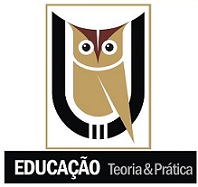Education in the Direction of Public-Private Partnership
Keywords:
Parceria público-privada, TIC, eLearning, Política educacionalAbstract
The process of the neoliberalism reveals, at its more intense moment, the submission of all the levels of the life human being the mercantile transactions, the capitalist inclination to the world-wide trading. In this manner, the neoliberal proposals objectify, over all, the creation of an only feeling to guarantee the success of its ideals of globalization, free-economy and State minimum, not inhibit the social politics, but partnership of the market. Amongst the artifices used for the neoliberal proposers, placed the Public-Private Partnerships (PPPs) with which this article concerns. From the conceptualization and characterization of the instrument Public-Private Partnerships (PPPs), national and European projects, developed through the PPPs, had been analyzed. The subjects of these projects involve Technology of Computer science and Communication and eLearning (education + technology + in the distance). Reflections had evidenced that the partnerships between governments and multinationals companies can lead to a loss of control on the part of the State on the educational formation of the citizens and the loss of identity of its resumes. The explanation for this phenomenon happens of the trend to the globalization. On the other hand, these partnerships bring profits politicians to the governments and economic to the companies.Downloads
Published
How to Cite
Issue
Section
License
Authors who publish in this journal agree to the following terms:
a) Authors assign copyright to the journal, with the work simultaneously licensed under the Creative Commons Attribution License that allows sharing of the work with acknowledgment of authorship and publication in this journal.
b) The policy adopted by the Editorial Committee is to assign copyright only after a period of 30 months from the date of publication of the article. After this time, authors interested in publishing the same text in another work must send a letter to the Editorial Committee requesting the release of the assignment of copyright and wait for a response.
c) This journal provides public access to all its content, since this allows greater visibility and reach of published articles and reviews. For more information on this approach, visit the Public Knowledge Project, a project that developed this system to improve the academic and public quality of research, by distributing OJS as well as other software to support the public access publication system to academic sources. The names and email addresses on this website will be used exclusively for the purposes of the journal and will not be available for other purposes. This journal provides open any other party  This work is licensed under a Creative Commons License
This work is licensed under a Creative Commons License










